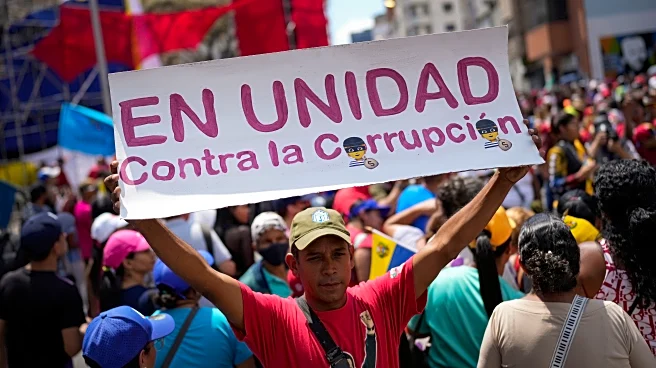Rapid Read • 7 min read
European Commission President Ursula von der Leyen is set to meet with U.S. President Donald Trump in Scotland to negotiate a framework trade agreement. This meeting comes as a response to President Trump's threat to impose a 30% tariff on EU imports starting August 1. The discussions aim to reduce the tariff to 15%, as part of efforts to maintain strong transatlantic trade relations. The U.S. and EU share the largest bilateral trade and investment relationship globally, accounting for nearly 30% of global trade in goods and services. The meeting is part of President Trump's four-day visit to Scotland, which will also include an informal meeting with U.K. Prime Minister Keir Starmer.
AD
The potential imposition of a 30% tariff on EU imports by the U.S. could significantly impact global trade dynamics, affecting industries and economies on both sides of the Atlantic. A successful negotiation to lower tariffs would prevent a trade war, which could have adverse effects on economic growth and stability. The U.S.-EU trade relationship is crucial, representing a significant portion of global GDP. Businesses and consumers in both regions could face increased costs and supply chain disruptions if tariffs are implemented. The outcome of these talks could set a precedent for future trade negotiations and economic policies between major global economies.
If the meeting results in a successful agreement, it could lead to a formal announcement of reduced tariffs, easing tensions between the U.S. and EU. However, if negotiations fail, the EU may implement countermeasures, potentially escalating into a trade conflict. Stakeholders, including businesses and political leaders, will closely monitor the situation, as the outcome could influence future trade policies and economic strategies. The meeting's results could also impact President Trump's trade policy legacy and the EU's approach to international trade relations.
AD
More Stories You Might Enjoy













